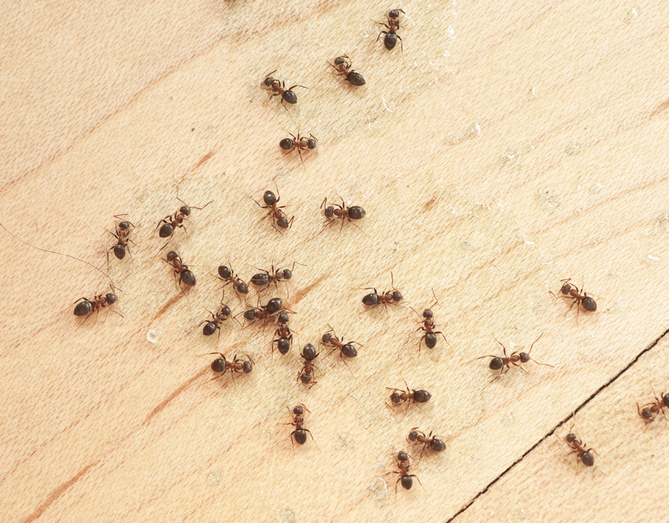The Fascinating Lifespan of Ants
How Long Does an Ant Live?
Ants, one of nature’s most prevalent insects, have lifespans that vary based on their role and species. Worker ants, responsible for foraging and colony maintenance, can live from a few weeks to several years, depending on the species. Queen ants, vital for reproduction, can live for multiple years, with some species living over a decade. In contrast, male ants, which mate with queens, have the shortest lifespan, often living only a few days after mating. Environmental conditions, food availability, and threats can also influence an ant’s longevity.
The Lifespan of Ants
These tiny creatures are often seen scurrying around our homes, gardens, and even our picnic spots. But have you ever stopped to wonder how long these industrious insects live? Let’s dive deep into the world of ants and discover the secrets of their lifespan.
Ant Lifespan: A Journey from Days to Decades
Ants, one of nature’s most intriguing and industrious creatures, have a lifespan that varies dramatically based on their role in the colony, their species, and the environment they inhabit. Let’s delve deeper into the intricate journey of an ant’s life, from its earliest days to its potential decades-long existence.

Save $50
on your first recurring service today with code GET50
The Birth of an Ant: From Egg to Adult
Every ant’s life begins as a tiny, cream-colored egg laid by the queen. These eggs are meticulously tended to by worker ants, ensuring their safety and nourishment. As the eggs hatch, they transform into larvae, which are legless and have a grub-like appearance. The larvae then transition into the pupal stage, resembling adult ants but initially having a cream color that darkens as they mature. Finally, they emerge as adult ants, ready to play their part in the colony.
Worker Ants: The Backbone of the Colony
Worker ants are the non-reproducing females that shoulder the majority of responsibilities in the colony. Their duties are vast, ranging from foraging for food, tending to the young, and protecting the colony from threats. Depending on their species, the lifespan of worker ants can vary.
- Odorous House Ant Workers – Commonly found inside homes, these ants can live for about two to three years.
- Fire Ant Workers – These ants have a much shorter lifespan, living only about five weeks. Their brief lives are marked by intense activity, from building mounds to defending their territory.

GET A PERSONALIZED QUOTE
To protect your home from pests, click here for a free pest control estimate. Our Orkin Pros will create a personalized pest treatment plan for your home or business
or Call (866) 249-0292
Queen Ants vs Male Ants
The queen ant is the centerpiece of the ant colony. Her primary role is reproduction, laying thousands of eggs throughout her life. The longevity of queen ants is remarkable. Some species of queen ants can live for over a decade, making them the longest-living members of the colony. Their extended lifespan is crucial for the survival and growth of the colony, ensuring a steady population and continuity.
Male ants, often referred to as “drones,” have one primary purpose: to mate with the queen. After this pivotal role is fulfilled, their life comes to a swift end, often living only a few days post-mating.
Factors Influencing an Ant’s Lifespan
Several factors can influence how long an ant lives:
- Species – As mentioned, different ant species have varying lifespans. For instance, while a fire ant worker might live for only five weeks, a queen of another species could live for over a decade.
- Environmental Conditions – Factors such as temperature, humidity, and access to food can impact an ant’s longevity. In ideal conditions, some ants can live longer than their average lifespan.
- Threats and Predation – Ants face numerous threats in their environment, from predators like birds and spiders to human-made pesticides. These threats can significantly reduce their lifespan.
The journey of an ant’s life is a testament to nature’s complexity and wonder. From their humble beginnings as tiny eggs to their potential decade-long existence as queens, ants showcase the diversity and adaptability of life in the insect world. At Orkin, we respect and understand these intricate lifecycles, ensuring that our ant control methods are both effective and considerate of the environment.
Orkin’s Expertise in Ant Control
Ants might be small, but their impact can be significant, especially when they invade our homes. At Orkin, we understand the behavior and lifecycle of ants, which allows us to predict and control their movements effectively. Whether it’s the trails they leave behind or their nesting habits, our expertise ensures that you get the best solutions for ant control.
Frequently Asked Questions
How long does a queen ant live?
Queen ants are the longest living members of the colony and can live for multiple years, with some species living over a decade.
What determines an ant’s lifespan?
Factors such as species, caste, location, food quality, and environmental conditions influence an ant’s lifespan.
Do all ants have the same lifespan?
No, different species have different lifespans. For example, odorous house ant workers live about two to three years, while fire ant workers live about five weeks.
Why do male ants have a shorter lifespan?
Male ants live only for a few days, primarily to mate with the queens. After mating, they die.
How can I control ants in my home?
Orkin offers specialized services to control and manage ant infestations. Our knowledge of ant behavior and lifecycle ensures effective solutions.
Are all ants pests?
Not all ants are pests. However, when they invade our homes in search of food or shelter, they can become a nuisance.
How do ants communicate?
Ants communicate using pheromones, which are chemical signals. They leave an invisible chemical trail for others to follow, especially when they locate a food source.
Where do ants nest?
Ants can nest in various places, including lawns, walls, stumps, and even under foundations.
Why Choose Orkin for Ant Control?
At Orkin, we believe in providing solutions that are backed by science and expertise. Our understanding of ants, combined with our range of products and services, ensures that your ant problems are dealt with effectively. If you’re facing an ant infestation or want to learn more about these fascinating creatures, call Orkin for assistance. We’re here to help!
Remember, the more you know about ants, the better equipped you’ll be to handle them. Trust Orkin to be your partner in ant control and let us help you maintain a pest-free environment.

FIND YOUR LOCAL BRANCH
To protect your home from pests, click here for a free pest control estimate. Our Orkin Pros will create a personalized pest treatment plan for your home or business
or Call (866) 249-0292

